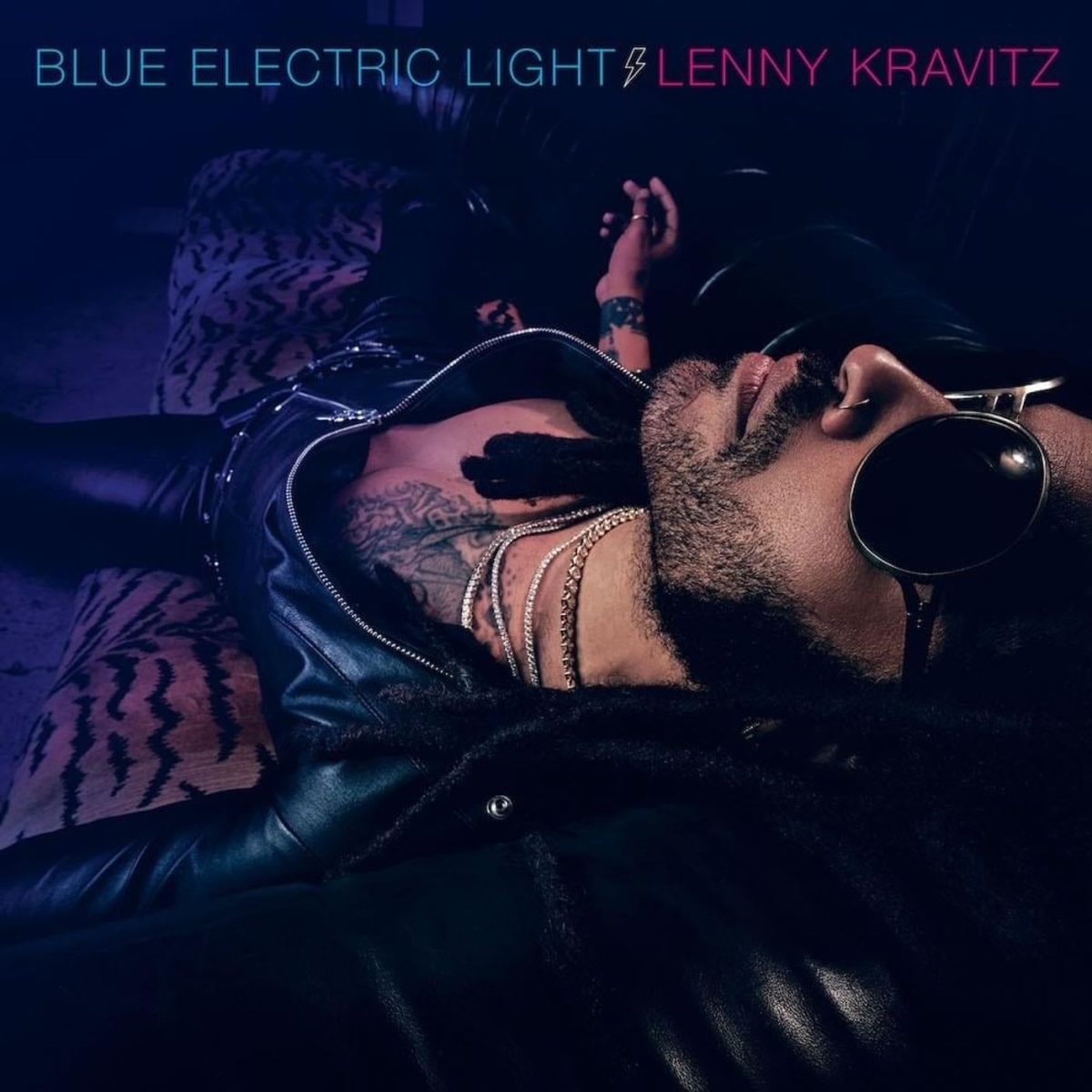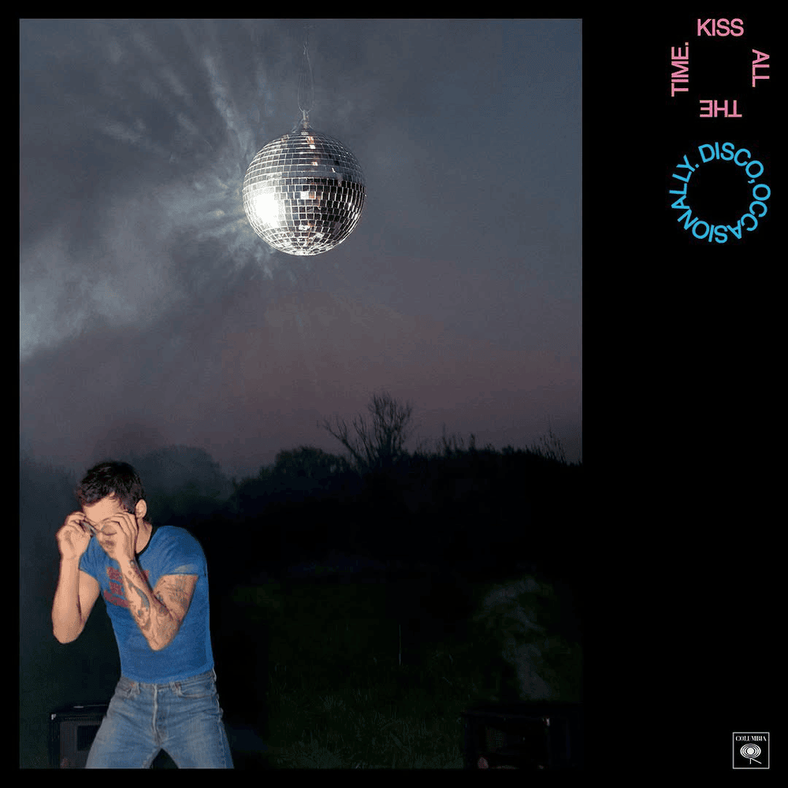Rating 6.9/10
Singer-songwriter and actor Lenny Kravitz released his 12th album, “Blue Electric Light,” on May 24 to accompany his memoir “Let Love Rule,” giving listeners a more intimate view of the icon’s perspectives on love and life.
Kravitz, a long-time lover of the absurd and unspoken, does not shy away from earnestness and, on occasion, cheesiness in his new project. Regardless, one can’t help but appreciate the sincere advocacy for a harmonious existence — something Kravitz has been championing since the 80s.
The album opens with the funk-inspired, classic Kravitz “It’s Just Another Fine Day (In This Universe of Love).” The track is reminiscent of Kravitz’s 1998 album, “5,” mimicking the more laid-back, retro vibe of the project.
“All our days are borrowed/ And we don’t know tomorrow/ I hear your voice, feel your power/ Let’s heal our souls from sorrow,” Kravtiz pleads over a Stevie Wonder-esque bass line.
Get The Daily Illini in your inbox!
While the funk-rock inspiration is welcome, if not desired in the modern rock music scene, the track, like many others throughout the album, feels repetitive. Though the energy picks up near the end of the song, the six-minute track feels like it takes around 10 to finish.
The next song “TK421” is an installation of Kravitz’s talent as a funk artist and producer. The 80s-inspired piece is fun, groovy and, perhaps most importantly for Kravitz, cool. The sun-glasses-sporting, leather pants-wearing artist has not been shy about his “cool-guy” aesthetic, and “TK421” will certainly be a display of this.
The single is named after the Star Wars franchise, with TK421 being the Stormtrooper who guards the Millennium Falcon in the original movie, revealing that, behind all the leather, Kravitz still has a nerdy side.
Unfortunately, the same repetitiveness issue applies throughout the album, and “TK421” is perhaps a victim of this as well. While the ingenious, skillfully crafted mid-song saxophone solo adds some much-needed respite, the same guitar riff can only be played so many times.
Kravitz hones in on the saxophone with the following track, “Honey,” in which his talent as a singer really shines. The song is expertly transitioned from “TK421” and is a classic example of an 80s love anthem.
The song brings to mind Kravitz’s previous work in leather-studded love songs, including rock hits such as “American Woman” and “Are You Gonna Go My Way.” While “Honey” does not quite reach the mastery of Kravitz’s previous work, it certainly brings one back to his past hits.
Kravitz continues this theme with “Paralyzed,” a metal-inspired interlude to the funk-rock album. Perhaps a bit on the nose, the song screams 80s.
“All you gotta do is keep on lovin’ me/ I’m under your spell, I’m hypnotized/ All you gotta do is keep on lovin’ me/ Babe, without your love I’m paralyzed,” Kravitz sings.
The album continues with cowbell-riddled, Prince-inspired tracks such as “Human,” “Let It Ride” and “Stuck in the Middle.”
Kravitz focuses the narrative of the second portion of the album on the power of love in the face of conflict. While a bit awkward at times, the tracks are a fun, much-needed nod to Prince’s visionary album, “Purple Rain,” an album that arguably perfected the love-conquers-all narrative that Kravitz has taken under his wing.
“You are the reason why I keep on searching/ And now, I’m at your door/ Always forever, for worse or for better/ I’m here to love you, you are my home,” Kravitz sings in “Stuck in the Middle.”
Kravitz then experiments with a banging-drum, electric feel in “Bundle of Joy,” somehow blending heavy rock and synth-pop in a brilliant fusion of disco and hair-rock. The foot-stopping, groove-inducing piece is perhaps one of Kravitz’s biggest derivations from his previous work, and one can’t help but wish he experimented more with this vibe throughout the album.
On the other hand, “Heaven” is a prime example of taking synth-pop too far. The song feels futuristic and geeky, riddled with sci-fi-esque sound effects that seem out of place within the narrative of the song, which, once more, proposes that everyone works together in harmony.
While genuine, the song feels misplaced in the modern era, lacking social awareness and offering no concrete solutions to the problems that Kravitz sees in the world. A common issue throughout the album, Kravitz’s solution to modern-day disillusionment seems to tell listeners to simply figure it out.
“We gotta work it out, work it out the best we can,” Kravitz begs, leaving listeners to wonder if Kravitz is aware of the social and political climate of the 21st century.
The album concludes with “Spirit in My Heart” and “Blue Electric Light,” two more pieces that attempt to dig into Kravitz’s soul and pay homage to Prince’s legacy.
While “Blue Electric Light” feels slightly like 70s montage music, the album ends in an unarguably Lenny Kravitz “peace and love,” “rock-and-roll forever” way, and for that, the album can’t be hated.
Overall, Kravitz’s latest album is a generally predictable, yet fun project. While the album is lacking self and social awareness, Kravitz continues to strut his leather pants and open shirts, and one can’t help but love him for his consistency.






